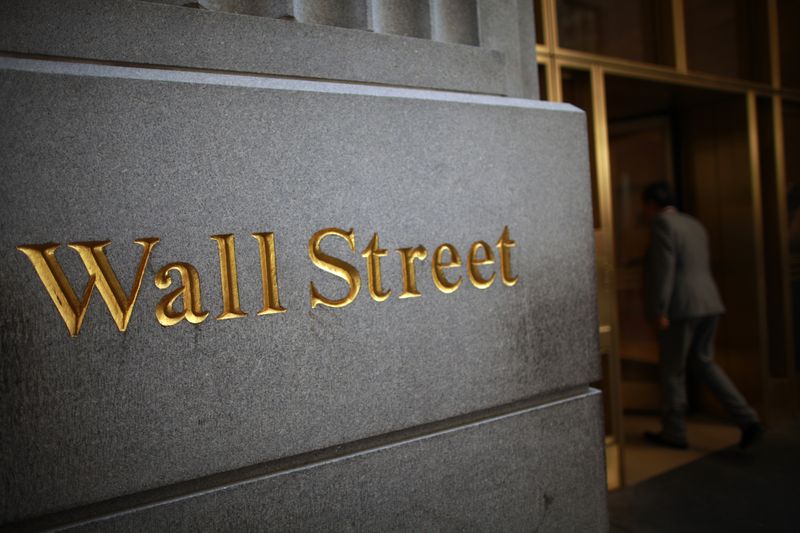Analysis-European stocks lure global investors as rate hikes hurt U.S. more
By Shreyashi Sanyal
(Reuters) - Global equity investors are finding financials-heavy European markets more alluring than their U.S. counterparts packed with expensive technology stocks in their rush for better returns amid growing signs of interest rates staying higher for longer.
Banks accounted for nearly 16% of the STOXX 600 index and have benefited from the high-rate environment, gaining nearly 20% to hit their highest in almost five years.
In contrast, 35% of the S&P 500, the world's largest index by market value, are technology companies. Tech stocks on the index have gained just 9% this year as rising rates make future profits for tech companies less valuable.
Looking at the broader market, the STOXX 600 has added nearly 7.5% in 2023, more than double the 3.4% gain in the S&P 500, marking its strongest performance versus the U.S. benchmark since 2017, according to Refinitiv data.
"In a market that prefers value-style investments in a high interest-rate environment, that clearly works in Europe's favour," said Edward Stanford, head of European equity strategy at HSBC.
The European equity market saw the least outflows among major economies last week, of $100 million, while the U.S. recorded the biggest outflows, of $9.1 billion, according to Deutsche Bank (ETR:DBKGn).
"It's been a good few months for Europe relative to the U.S., but there is more room for this trade to run over the course of 2023," said Hugh Gimber, a global market strategist at J.P. Morgan Asset Management.
"The attractiveness is not only at the index level but also within sectors as well."
Even though Russia's year-old invasion of Ukraine sent the cost of natural gas and electricity to record high and pushed the region to the brink of a recession, Europe's economy is looking a lot less fragile.
The winter has been warmer than usual and the region's gas storage tanks are full. Along with billions of euros in government aid to homes and businesses, the economy has shown resilience.
Stoxx v SPX relative outperformance https://fingfx.thomsonreuters.com/gfx/mkt/zgvobnkdjpd/STOXX%20SPX%20RELATIVE.png
THE CHINA BOOST
Greater exposure to China at a time when the United States has been trying to reduce its dependence on the world's second largest economy has also helped Europe's automakers, miners and luxury companies.
Exports from the eurozone to China account for about 3% of the region's total GDP and 3.5% of Germany's output, according to Barclays (LON:BARC).
The Paris stock market, which houses premier luxury names including LVMH, Kering (EPA:PRTP) and Hermes International (OTC:HESAF), has benefited more from China demand as its economy emerges from a strict pandemic-related lockdown.
"We are starting to turn more positive on consumer discretionary," said Laura Cooper, senior macro strategist at BlackRock (NYSE:BLK).
France's blue-chip index hit a record high earlier this month, while London's FTSE 100 recently notched a string of all-time highs.
"The resilience of the consumer is evident with the recent economic data, and largely in Europe over the U.S. because we're starting to see deterioration in some of the consumer gauges in the U.S.," Cooper said.
CHEAPER IN EUROPE
On the valuation front too, the European stock market is much cheaper than the U.S. The STOXX 600 trades at about 13 times its 12-month forward price-to-earnings ratio, while the S&P 500 trades at some 18 times.
"Europe remains cheap compared to their U.S. counterparts but this, at least at the index level, has a lot to do with sector composition," said Julien Lafargue, chief market strategist at Barclays Private Bank.
Despite this advantage, it is yet to be seen if the outperformance by European markets will be sustained long term.
A Reuters poll found that analysts and strategists were cautious on European shares and expect the STOXX 600 to fall slightly in 2023 against the backdrop of a likely cut to earnings and doubts over the outlook for monetary policy.
"In addition, what drives long-term performance is not valuations but earnings. And on that front, we see no reason to believe that there has been a paradigm shift in favour of Europe," Lafargue said.












 Bitcoin
Bitcoin  Ethereum
Ethereum  Tether
Tether  XRP
XRP  USDC
USDC  Solana
Solana  TRON
TRON  JUSD
JUSD  Figure Heloc
Figure Heloc